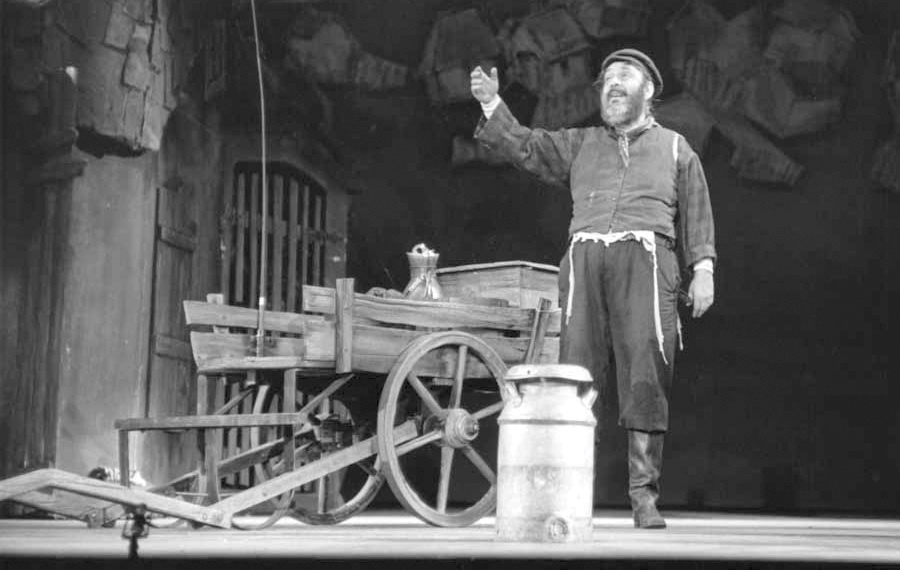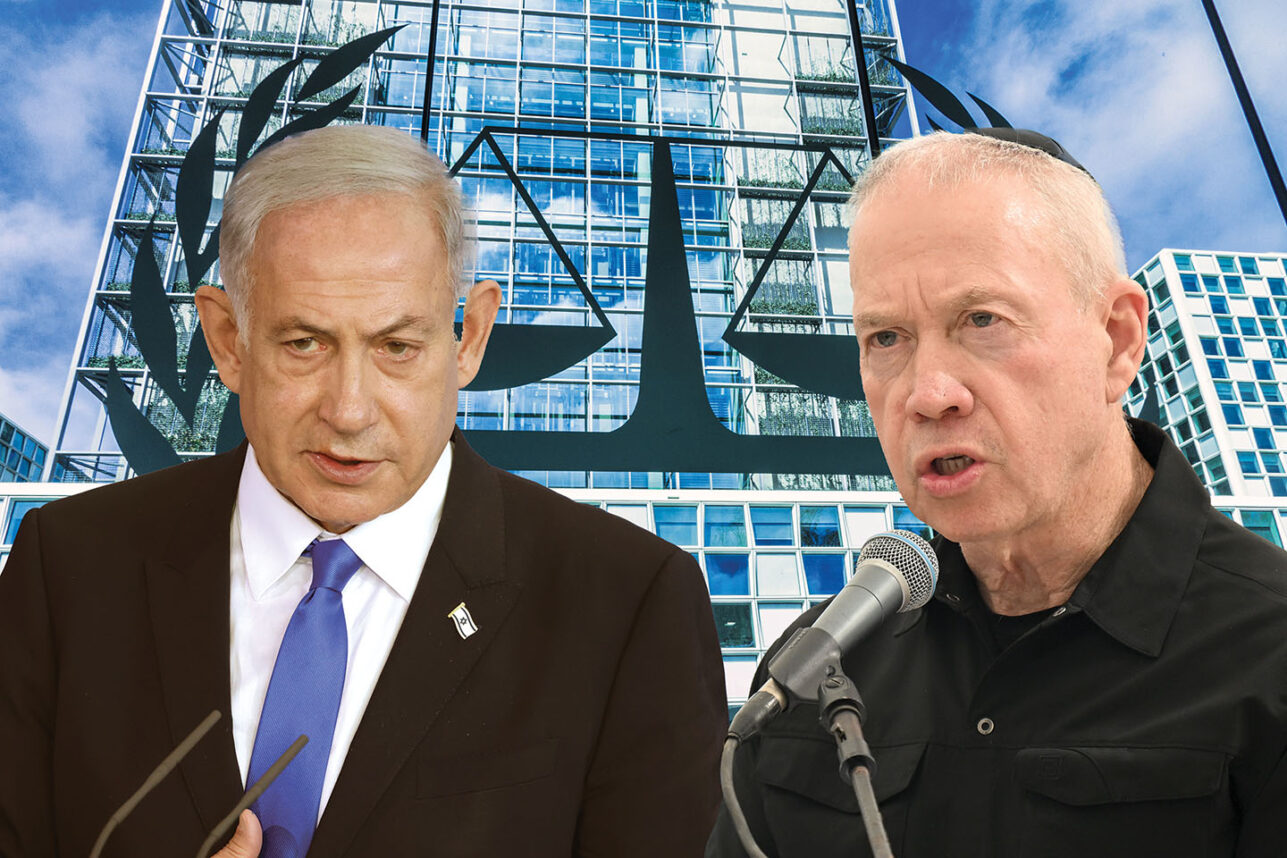
Whether you first saw the 1971 movie version of “Fiddler on the Roof” or one of the thousands of productions that have been staged all over the world since its 1964 debut on Broadway, chances are you fell in love with it. No other musical speaks to Jewish history, culture and experience more than the Diaspora story of Tevye the Dairyman and his family. Setting Sholem Aleichem’s tales of early 20th-century czarist Russia to music, “Fiddler” is so specific in its Jewishness yet so universal in its appeal.
Through footage from myriad productions and new and archival interviews with cast members, creators and other notables, the documentary “Fiddler: A Miracle of Miracles” tells the show’s origin story. It also highlights the sociopolitical and cultural context of the 1960s and speaks to themes of women’s empowerment, gender roles, immigration and anti-Semitism that are just as relevant today.
“ ‘Fiddler’ connects to anyone who has a family, who has children, who fights to survive in a world that fights against their survival,” director/co-producer Max Lewkowicz told the Journal. “The daughters’ story is women’s rights at a time when women couldn’t vote. It’s so prescient and so rich.”
Lewkowicz first saw the movie “Fiddler” and the show years later on Broadway. The father of four said he was deeply affected by Tevye and his daughter Hodel’s farewell scene and the ultimate expulsion of the Jews from Anatevka. “My mother was from Krakow,” he said. “She was one of Schindler’s Jews. She survived Plaszow and Auschwitz.”
Lewkowicz and his co-writer/co-producer Valerie Thomas came up with the idea for the documentary when they heard lyricist Sheldon Harnick speak about “Fiddler’s” creation at New York’s Holocaust Museum three years ago. The only surviving member of the creative team, Harnick is interviewed in “Miracles” as are producer Hal Prince and choreographer Jerome Robbins, via archival footage.
Tevye portrayer Harvey Fierstein, Yiddish “Fiddler” director Joel Grey, and Austin Pendleton — who originated the role of Motel the tailor — share their “Fiddler” experiences.
“ ‘Fiddler’ connects to anyone who has a family, who has children, who fights to survive in a world that fights against their survival.” — Max Lewkowicz
With the help of Alisa Solomon’s book “Wonder of Wonders: The Cultural History of Fiddler on the Roof” as a resource, the filmmakers uncovered a 1966 video of actors Chaim Topol and Danny Kaye singing “To Life” in Hebrew. They also discovered a production number of the same song from Lin-Manuel Miranda’s wedding, and a clip of the Temptations performing “If I Were a Rich Man” in 1969.
Lewkowicz said acquiring licensing rights and approvals from various sources was the biggest hurdle. “We had 10 different productions in the film, from Thailand to Rotterdam to Broadway to Canada, and I had to negotiate each one. We had to pay MGM a huge fee for the rights to the [1971] film.” When the rights to the current off-Broadway Yiddish production of “Fiddler” proved to be too expensive, they brought in its Tevye, Steven Skybell, to sing in the studio.
“Miracles” also showcases the Marc Chagall-inspired set designs of Boris Aronson, who was hired after Chagall turned down the job. “He told Jerome Robbins he was too busy,” Lewkowicz said. Chagall-like animations by artist Tess Martin accompany some of the music in the documentary.
The son of Polish Holocaust survivors who met after the war, Lewkowicz was born in Israel, not Poland as he’d believed and his passport indicated. “My mother faked my birth certificate. She had lost her husband and baby [in the Holocaust] and was worried I would go into the Israeli army and be killed,” he said. But when he was 3, the family relocated to Montreal to be closer to New York and his mother’s sister, her only surviving relative.
Although his mother’s devastating loss had turned her away from Judaism, “She always made sure I understood that I was a Jew, and [instilled] the basic elements of being Jewish: education, family and love. I had a bar mitzvah, went to Hebrew school, celebrated the holidays, and learned to speak Yiddish,” along with German, French and Polish, Lewkowicz said. “I don’t speak Hebrew but have been to Israel 20 times.”
Lewkowicz, who holds degrees from McGill and New York universities, won a New York Emmy for his documentary “Morgenthau” in 2015. He has made scores of Holocaust survivor documentaries for Jewish museums/Holocaust centers in New York, South Africa and Canada, and for the Normandy American Cemetery Visitor Center, honoring military personnel killed in World War II. His future slate includes more of the above, and a series called “Following Orders,” about the ethical issues that those in the military face.
While “Fiddler: A Miracle of Miracles” has delighted crowds at Jewish film festivals, “I want all people to see this film, not just Jews,” Lewkowicz said. “I see it as a universal story that we all can be proud of, and we all can relate to.”
With anti-Semitism, xenophobia and hate on the rise, the themes of “Fiddler” are more relevant than ever, he noted. “We as Jews have a responsibility to heal the world. Tikkun olam. We have to be more understanding and have more compassion.”
“Fiddler: A Miracle of Miracles” opens in theaters on Aug. 23. A special screening, sponsored by the Los Angeles Jewish Film Festival and the Jewish Journal, will take place at 4:40 p.m. Aug. 25 at the Laemmle Royal in West L.A. There will be a Q&A after the screening with Barbara Isenberg, author of “Tradition!: The Highly Improbable, Ultimately Triumphant Broadway-to-Hollywood Story of ‘Fiddler on the Roof,’ the World’s Most Beloved Musical,” and Stephen Sass, president of the Jewish Historical Society of Southern California. Tickets and info can be found here.





















 More news and opinions than at a Shabbat dinner, right in your inbox.
More news and opinions than at a Shabbat dinner, right in your inbox.